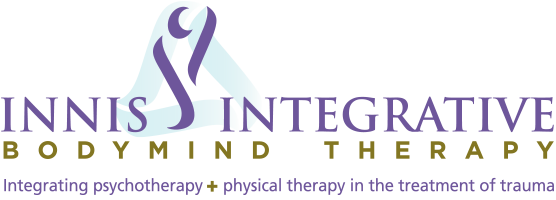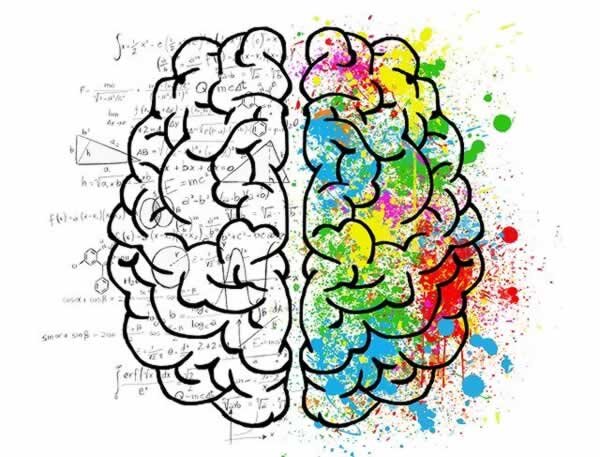PTSD, feeling terrified and out of control? Find the comfort you need.
Are the After-Effects of Trauma Interfering With Your Ability to Live the Life You Want?
Do you feel overwhelmed by distressing memories, thoughts, and feelings about a traumatic event that occurred recently or long ago? Have you ever wondered if you have Post Traumatic Stress Disorder? Maybe you are experiencing painful physical and emotional symptoms, such as increased anxiety, anger, or hopelessness, but feel unsure why. You may feel isolated and alone, like your life is getting smaller and smaller as you try your best to manage your environment, the people you engage, and an unpredictable world. In your attempt to minimize negative feelings, you might have also minimized feelings of joy, pleasure, and gratification. Do you fear that something is wrong with you or that you are permanently broken? Do you wish you could enjoy greater calm and ease and cultivate a passion for friends, family members, activities, and life itself?
Struggling with the after-effects of a traumatic event can be a helpless, hopeless, and overwhelming experience. Perhaps you feel as though you are a different person than you were before the incident, and you long to regain your ability to function well and feel safe and secure in your body and your world. Maybe you often sense a fog over your thoughts, or you can’t stop feeling on-edge, worried that your traumatic memories will take over – or that the trauma will happen again. You fear that your friends and family members would be better off without you, and struggle with frightening thoughts of suicide. As time passes, you may worry that you will never feel safe, whole, or free again. Perhaps you are exhausted by insomnia, flashbacks, nightmares, looping negative thoughts, panic attacks, and an inability to relax and wonder how you can take hold of your life and find lasting healing.
If You Have Experienced a Trauma or Believe You Are Struggling With Symptoms of PTSD, You Are Not Alone
According to the National Institutes of Health and the Department of Veteran Affairs, 70 percent of adults in the U.S. have experienced some form of trauma at least once in their lives. Up to 20 percent of these people go on to develop PTSD. Trauma comes in many forms and impacts everyone differently. Trauma can happen when a person is directly involved or standing by as a witness. It can occur as a single event or after a lifelong pattern of abuse, neglect, oppression, and marginalization.
There is a difference between the typical after-effects of trauma and the development of post traumatic stress disorder (PTSD). A frightening experience triggers our body’s normal fight/flight/freeze response as a method to ensure survival. The symptoms associated with the incident can be a racing heart, shaky, sweaty or clammy hands, and intense but fleeting fear or anxiety. After the event is over, you may feel leery about encountering that event again, or you may feel fearful of engaging in behaviors that led to the event (e.g. driving a car or passing the intersection where the accident occurred). All of these responses are normal and usually fade away, receding into your memory as a scary time in the past. When healthy healing occurs, these sensations do not continue to interrupt your daily life.
Symptoms associated with PTSD are more severe, intrusive, and life-altering. PTSD symptoms develop when an individual is exposed to an event that is both unbearable and intolerable. It can be summarized as the experience of a single event or series of events, which are actual or perceived to be inescapable and life threatening. PTSD is associated with extreme fear, a prevailing sense of helplessness, and high emotional charge.
Constant unresolved stress, medical diseases and procedures, a person’s genetic makeup, the presence of varying levels of anxiety and depression, and one’s attachment style with their early caregivers can influence the development of Post Traumatic Stress Disorder (PTSD). As confusing as it may seem, two people can experience the same event, be raised in the same family, and one will experience severe trauma and develop post traumatic stress disorder (PTSD), while the other may experience little to no distress. How we respond to trauma can be quite different for different people.
While these symptoms of PTSD may feel daunting, there is hope for relief and healing. You can learn ways to reduce those symptoms, become more comfortable in your own skin, and begin to enjoy life more fully.
With PTSD Treatment, You Can Transform Trauma Into Triumph
Reach out for the help you need to make this transformation. Jeri Innis, Innis Integrative Therapy, offers confidential, compassionate, solution-focused approach to PTSD treatment, using many evidence-based modalities to resolve the effects and intrusive memories associated with PTSD, chronic stress symptoms, and chronic pain. Together, we will explore how trauma is interfering with your life, your career, and your relationships and come up with individualized treatment goals that are in alignment with your inner values and passions.
A combined approach of psychotherapy, trauma therapy, and physical therapy can be the most effect way to begin changing your PTSD symptoms. Most trauma experts agree that addressing and resolving trauma issues is best done through the body, not the mind, because the effects of PTSD reactions are located in the emotional brain and not the rational brain. The rational brain expresses itself in thoughts. The emotional brain manifests itself in physical reactions: gut-wrenching sensations, pounding heart, quickened and strained breathing patterns, aching heart, constricted uptight vocalizations, and body movements of collapse, rigidity, rage, and defensiveness. Addressing the emotional brain is the most effective way to regain control over yourself, restore calm in moments of distress, and learn long-term coping skills that you can utilize to interrupt the hyper-arousal sensations that usually accompany symptoms of PTSD.
During PTSD treatment sessions, I can help you begin to put your life back on track. Early intervention is extremely important for trauma resolution and can help interrupt unhealthy coping mechanisms. You can feel safe, calm, and back in control of your life.
You may believe that PTSD treatment can help you create the life you want, but still have questions or concerns...
I’m afraid if I start treatment for PTSD, I’ll uncover something very painful.
This common fear often holds people back from seeking the support they need. It is helpful to know that you are not alone. Dealing with the chaos you might be experiencing following a traumatic event can be very challenging, especially if you are trying to do it alone. There is no reason to carry the burden alone or for long.
I am familiar and attuned with the physical manifestation of emotional pain often associated with PTSD, such as chronic migraines, chronic body aches and pains, chronic immune system suppression, insomnia, feelings of hyper-vigilance, anxiety, depression, and uncontrolled anger. You do not need to continue living like this. With PTSD help, you can make dramatic changes in your symptoms.
What about just leaving things alone. Doesn’t time heal everything?
Traumatic experience are recorded and encoded in brain, affecting present and future experiences as well as past memories. Traumatic memories, and the physical manifestations associated with the event, will not resolve on their own. In fact, science proves that, left untreated, the condition is likely to become progressively worse with time.
However, you can transform your suffering. You can learn to trust your body more, learn ways to control fear and anxiety, and slowly regain the self-confidence that you lost as a result of the traumatic event.
I feel overwhelmed by all of the time and money I’ve already dedicated to my recovery.
Trauma resolution therapy does not have to take long. Addressing the affects trauma has on your nervous system can be very quick. And, our work will offer you the chance to see how trauma has impacted other areas of your life, sense of balance, and wellbeing, which can also change for the positive. Trauma treatment will teach you ways to better take care of yourself, address the anxiety you might be experiencing related to your trauma, and find the calm you are looking for.
With PTSD Treatment That Addresses the Mind and the Body, You Can Feel New Security and Freedom
Regardless of what you have been through, you can find lasting healing. I invite you to contact me here for support, psycho education related to trauma and how the body responds to trauma, or any questions you may have.








